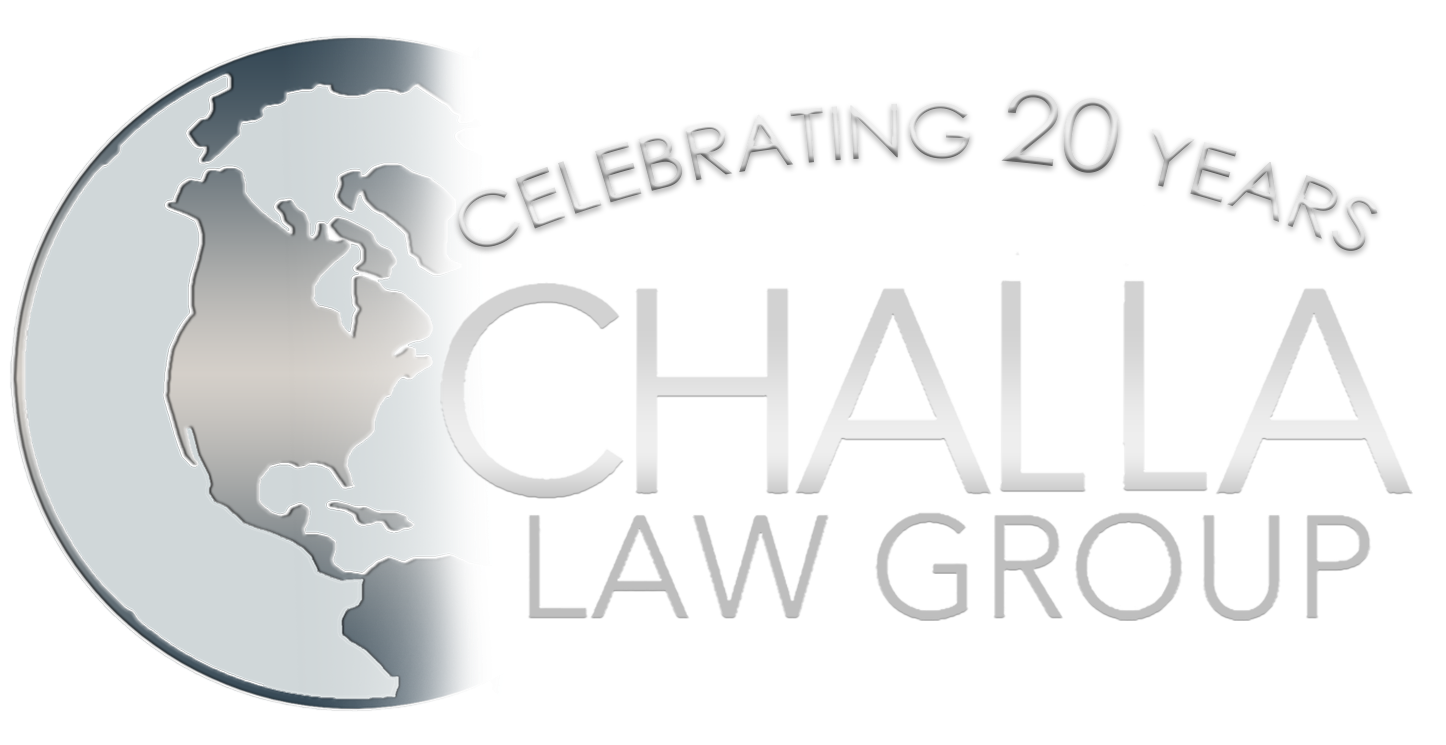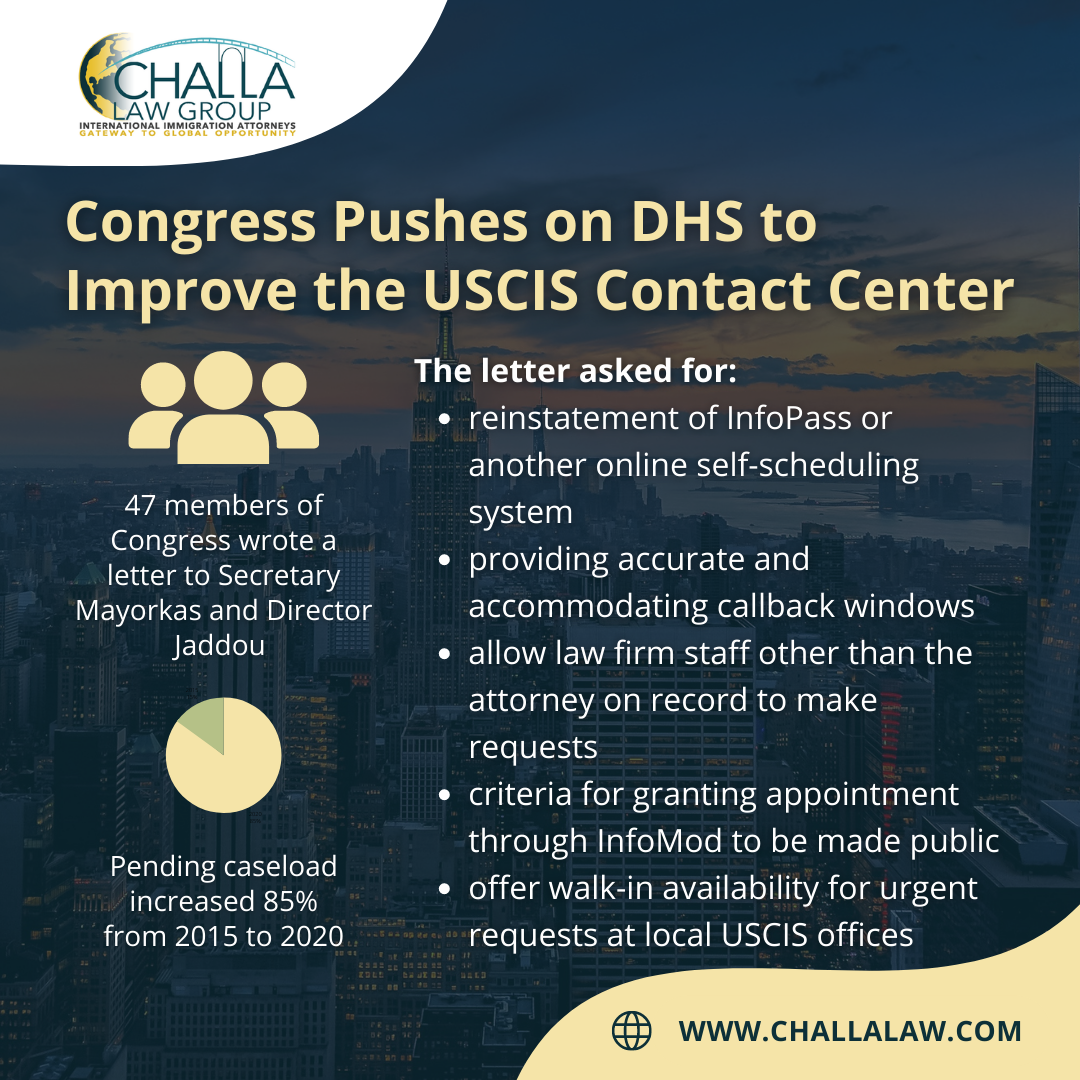
Only have a few minutes? Here are the key takeaways:
- In January of 2020, the NVC backlog was at 80,000. Fifteen months later, the current number of applicants that are ready for interviews is 481,965.
- DOS is prioritizing family unification with four priority tiers:
Tier 1 are family-based immediate relative visas and adoption-based visas, as well as age-out cases and certain special immigrant visas.
Tier 2 is going to be other immediate relative visas for spouses, fiancés, parents, and returning resident visas.
Tier 3 is family preference visas, other special immigrant visas for certain employees of the US government
Tier 4 includes all other immigrant visas, including employment-preference visas and diversity visas.
- Fiance visas are part of a National Interest Exemption and are not subject to geographical travel restrictions.
- The Diversity Visa is a fiscal year program, so as regulations currently stand, all visas must be issued or approved by September 30, 2021 or else they cannot be utilized.
- DOS is urging patience as consular posts continue to deal with the effects of the pandemic.
Summary of Q & A with Department of State’s Neal Vermillion
Neal Vermillion is a division chief in the Visa Office of the Bureau of Consular Affairs. His division is the Office of Field Operations, which provides guidance to consular sections, embassies, and consulates around the world. He has served for the DOS since the early 2000s all over the world in different field offices and consulates. He is glad to have the opportunity to talk and answer questions about the unprecedented situation with the visa backlog.
This event is intended to address issues of general interest related to the content of the visa backlog. Questions and answers have been paraphrased and should not be interpreted as verbatim quotes.
Neal would like to go over the recent history of the backlog as a primer before beginning his Q&A:
Overseas immigrant visa processing has been shut down due to the pandemic for the past year, which has affected the immigrant visa backlogs in an interesting way. Last spring, President Trump signed Presidential Proclamation 10014, which prevented the issuance of many immigrant visas. There are still many geographic proclamations in effect which have been issued to protect the health and security of Americans. Proclamations are in effect which cover 33 countries. These issues have all contributed to the creation of an unprecedented backlog. Getting out of the backlog is an ongoing process, although it will be hindered by the ongoing nature of the pandemic.
The reopening process has been hampered by slow vaccination rates outside of the United States, where the pandemic remains a much more serious problem. Neal would like the listeners to know that the Department of State is aware of the problems that visa applicants face and is committed to providing relief and decreasing the Immigrant Visa backlogs.
What is the DOS doing to decrease the visa backlogs worldwide?
We are fully committed to reducing that backlog, and honestly keeping people informed is part of that effort, which is part of why we’re doing this. I also want to highlight that we have started posting in the last month and will update monthly on our travel.state.gov the stats of the immigrant visa backlog. The National Visa Center – the current number of applicants that are ready for interviews is 481,965 – this is up from January’s figure of 408,255. For comparison, in our last normal month of processing, back in January of 2020, almost fifteen months ago, we had a backlog of 80,000 then. That number will fluctuate over time, and it does not change in a linear way.
In terms of what we’re doing, we’re throwing all available resources that we can at the backlog and we’re telling our overseas consular sections and our embassies and consulates overseas that, after services to US citizens, processing of immigrant visas and fiancé visas is our number one priority. Please understand we are continuing to deal with circumstances on the ground, and our ongoing response to the backlog will depend on these circumstances. We are trying to process these applicants as quickly and safely as possible.
How are IV applicants being prioritized?
We have an article on travel.state.gov from our newsroom that details this, but I’ll answer here as well. Basically, we have many immigrant visa categories. We have relatives, we have employment visas, we have family visas, we have diversity visas.
We don’t want to prioritize any of these categories, however, during the pandemic, we’ve been forced to make difficult decisions on how our consular sections should prioritize different visas. As we develop a framework for prioritization, the principle that underlies our plan is the prioritization of family reunification. It’s a clear priority of the US government, it is a clear priority in the INA, it is specifically our prioritization guidance that we have given publicly as well as to our consular sections. Our guidance relies on a clear direction from Congress that requires the adoption of policy that prioritizes family reunification.
We’ve given our divided immigrant visa work into four priority tiers. We have directed consular sections where it is possible to schedule appointments within all four priority tiers. The majority of the applications that a section will process if they are able to are going to be within the first two tiers.
Tier 1 are family-based immediate relative visas and adoption-based visas, as well as age-out cases and certain special immigrant visas.
Tier 2 is going to be other immediate relative visas for spouses, fiancés, parents, and returning resident visas.
Tier 3 is family preference visas, other special immigrant visas for certain employees of the US government
Tier 4 includes all other immigrant visas, including employment-preference visas and diversity visas.
As mentioned, we’re going to try and do as much as we can for each of those tiers. Some consular stations are processing some cases from each of these tiers.
Will DV 2021 selectees be able to get an interview before the September 30, 2021 deadline?
Diversity visas are a hot topic; we’ve gotten this question before.
The good news is that Presidential Proclamation 10014 has been rescinded, so for the first half of this fiscal year, we were unable to process diversity visas due to that proclamation. As I’m sure people who are interested in diversity visas know, that program is specific to each fiscal year. I can tell you that our colleagues that are responsible for this program, which is the Consular Center, has begun to schedule and process documentarily qualified visas. We truly value the diversity visa program and are going to do what we can.
That said, this pandemic is unpredictable. We’ve seen spikes in the past month in South Asia and in other places. It’s impossible to forecast how many DVs we will issue this year. It is very likely that we will not be able to issue all of the diversity visas this year. 55,000 is the maximum we are able to issue each year.
Obviously last year we weren’t able to get as close to that ceiling as we like. We are committed to doing as much as possible. As has been mentioned earlier, we have local conditions and restrictions that have forced us to prioritize. We are going to do as much as we can before the end of the fiscal year, but it will not be near the 55,000 allowed by the statute.
Will DV 2020 selectees who were not interviewed prior to September 2020 be interviewed?
I understand the frustrations of the selectees from last fiscal year. It’s kind of the opposite of what happened this year, where we processed smoothly for the first half of the year and then were interrupted by COVID.
To go back to what I said earlier, the diversity visa program is a fiscal year-specific program. Applicants who were refused because of that proclamation last year cannot be interviewed. The terms of these programs – the fact that it is specific to fiscal year is outlined in the statute. It’s unfortunate, but there’s nothing we can do about it.
If you did win and were selected for DV 2020, you can enter future DV lotteries.
That’s a great point, and I know many many people apply for the program year after year after year, and after fifteen years they finally get it. There are no guarantees, of course, it is a selection process.
Why can’t immigrant visa applicants be interviewed virtually?
Good question. Obviously, we’re doing Zoom and YouTube here, technology has changed quite a bit. I’ll give you a straightforward answer – maybe not the most welcome answer – immigrant visa applicants are required by statute to be interviewed in person. As a consular officer who has worked in the field, there are some benefits I should talk about with this process:
National security is our top priority when we adjudicate these applications. Each prospective traveler undergoes extensive screenings. Part of that is that our officers not only look at the visa application, but they also talk to the applicant to make an informed decision about whether the person is eligible or whether there are any national security concerns.
Can you talk about K-1 visas specifically and where they are on the priority list?
K-1 visas are a priority, as I mentioned earlier, we have four tiers of immigrant visa priority, and that the majority of consular sections will be focusing on the first two tiers. Fiancé visas are in that tier as well, along with spousal visas and immediate relative visas in our tier 2. They are a focus. Depending on the post, the backlogs in these cases may be longer than others.
You mentioned for fiancée visas specifically that the geographic proclamations no longer affect those visas?
That is correct. That’s worth reinforcing, since just last month. There is a National Interest Exception. There is a blanket declaration from the Secretary of State that these are a National Interest Exception.
How long does it take to process a current EB I-485 application?
I can’t really get into that, because I’m not an expert. There are so many areas that influence processing time. As many of you know, most immigrant visa applications start with a petition filed with USCIS, and that’s an area I can’t really get into. USCIS I’m sure is facing their own resource constraints, their own pandemic restraints.
Most of our immigrant visa cases get routed through the National Visa Center, which also has its own processing. It takes time, and sometimes people submit documentation that’s not complete, and it takes time to go back and get that documentation, so – public service announcement, please make sure your application is documentarily complete before sending.
At the end, if you have cases sitting in the National Visa Center that we are able to schedule, it comes down to individual posts. I’m not even able to answer that question directly. On the positive sign, we don’t have a proclamation preventing us from processing cases directly, and many of our posts have started resuming services. As of a week or two ago, there were a dozen posts that were not doing immigrant visas. Some were COVID related, such as the spike in South Asia for example, and some were not COVID related, such as Burma and Russia, for example.
Do you know about the status of the KCC backlog processing Diversity Visas? It’s been months.
The KCC, I talked with my colleagues there, and my advice is to just be patient. They are processing as much as they can in the order in which the cases are received. For those of you who are waiting for scheduling, please wait until you are contacted by your particular embassy or consulate. I’ve seen other questions about KCC, and their leadership has reminded me to tell you that if you’re used to calling KCC, they had to send the entire staff home due to the pandemic spike last fall. They used to accept phone calls, they don’t anymore. It’s best to get in touch with KCC via email, although their email system is also backlogged. They are doing their best, please be patient. KCC will get to them, and I encourage you not to send a second or third or fourth follow up. We’re trying to get as many DVs scheduled as we can.
Why are there zero interviews scheduled except for a few expedite cases in the F2 category?
Again, I’m not sure if I can get into each specific category because there are so many factors. Certain posts are able to schedule interviews, depending on their local restrictions. I understand you had on my colleague Charlie Oppenheim who can provide more details on when numbers are available for scheduling, and when they can be called “current.” It really comes down to the particular circumstances in that country.
To get back to the tiers, family preference immigrant visas are in the third priority tier. We are trying to process some, for posts that have backlogs, their emphasis will be on processing fiancés and immediate relatives.
For the Tier 1 category of visa preference, do applicants receive their interview appointment without waiting for the first and the fifteenth of the given months or will the 2NL be sent with no wait time?
This goes back to where we have a multi-step process to talk about. What the NVC does is one thing. The case might be ready to be processed pretty quickly, but a certain consular section or embassy or consulate may not be ready to accept those cases. Many consular posts have determined that they are not planning to accept new cases from the national visa center for the next several months. They will work through those and other high-priority cases before scheduling anything new.
If I have an I-485 AOS done in OCT 2020 for an EB-3, can we request our medicals now before a request is made by USCIS?
I would just follow the directions that are given by the NVC and USCIS. The answer to that is probably gonna be a no, just because the medicals come later in the process. You can tell from this conversation that a lot of my discussion is going to be general. I’m not able to talk about any individual case.
Are there any plans to increase staff?
Good question. I’m not the resources guy, so I wouldn’t be the person to ask about that. I’d love to have more staff, but this is not purely a staffing issue. If the world were perfect, Congress would now where to put its resources for staffing – first of all, staffing takes a significant amount of time with training and all that, but the important points that in many of these backlog cases, the backlog is coming from those other factors I’ve talked about – the Presidential Proclamations, the fact that we’ve had to shut down, and the closures at consulates and embassies. It’s going to be a non-linear process, but we will get there as quickly and safely as we can.
Do embassies prioritize medical professionals such as nurses under the EB-3 category?
Good questions. EB-3 is an employment preference category, which would put in priority tier 4. We recognize the importance of medical professionals, our posts are doing their best to process as many as they can, but there are certain exceptions, but at this time all employment-based preferences are in the lowest tier of priority. It really depends on your consular section.
Is It possible to maintain or go back to regular capacity by providing a COVID test less than 72 hours before an appointment?
That’s a really good question, and I applaud the creative thinking, but, unfortunately, each consular section is operating in a different locality. We need to follow the local guidelines for shutdowns and social distancing while also following CDC guidelines for operations.
Why would consulates not book IR-1 or CR-1 interviews?
IR-1s are immediate relatives, so without knowing the specific circumstances of the consulate that you’re talking about, I can’t comment on why interviews are not being scheduled. Again – patience, patience, patience. In that particular locale, the list is probably long, and circumstances are probably preventing the processing of immediate relatives, and they’re working through it as fast as they can.
Have you actually ordered all embassies to resume IV processing? What are you doing to ensure that posts are following orders?
No, posts have not been ordered to resume IV processing. Let me review the guidance that we’re talking about: We need to prioritize the health and safety of our applicants and our staff, and about the people who come into contact with those people. We cannot order a consular section overseas to proceed if it is unsafe to do so. What I can say though is that, as they are safe to reopen, consulates must follow the prioritization guidelines I mentioned earlier. Please be patient. It’s not an easy situation for any of us.
Connecting with Challa Law Group
Join us on Wednesdays for a live webinar at 12 PM ET on critical immigration updates

Don’t miss out on the immigration news! You can sign up for our mailing list or follow us on Facebook, Twitter, Instagram, YouTube, or LinkedIn. You can also join our Telegram community.
Contact us at info@challalaw.com or 804-360-8482 to get your case started today.









